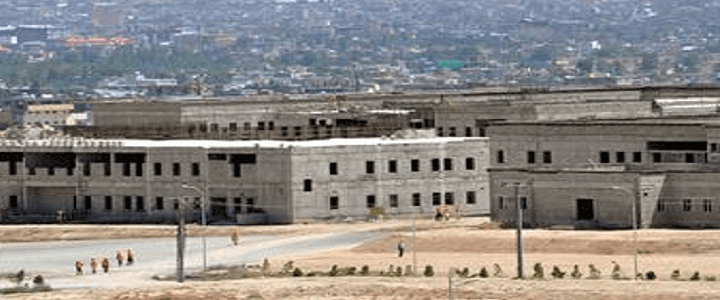Just a week ago, a Washington Post investigative report unveiled what it dubbed “The Afghanistan Papers,” accusing senior government officials of “making rosy pronouncements they knew to be false and hiding unmistakable evidence the war had become unwinnable.” The Hill quickly followed suit, declaring the report a “bombshell.” The revelations were startling, and lawmakers have been quick to call for hearings on the subject. Yet, by week’s end, The New Republic was rolling its journalistic eyes, noting that the media was largely ignoring the Afghanistan Papers.
Why?
Maybe because the revelations weren’t so startling after all. Maybe because every single document highlighted in the Afghanistan Papers covered a subject that had already long since been addressed publicly. Maybe because the public really isn’t all that interested in what happens in Afghanistan. Or, maybe because, as The New Republic noted, everyone shares in the blame – elected leaders, government officials, think tanks, and even the press. Even a modicum of critical thought exposed the faults in our Afghan policy and seeing the bi-annual parade of strategy was like watching a kicker try to find the goal posts in a driving snowstorm. It’s hard enough to find those goal posts when it’s snowing; it’s even harder when they’re a moving target, and harder still when they’re a mirage.
No one should be surprised – or startled – that some of the voices expressing doubts about our ability to achieve nebulous, often unattainable goals were from the very same leaders tasked with winning what has long been called an unwinnable war. Frankly, after 18 years of war, I’d be more surprised if they didn’t have some doubts. Most of us share those doubts, and many of us have raised them more times than we can count.
If anyone is truly startled by anything revealed in the Afghanistan Papers, it should be that we prosecuted America’s longest war without a clear understanding of what represented success. What did “winning” look like in Afghanistan? If the answer was – something many of us heard a multitude of times – “a peaceful, stable, and self-sustaining nation” then that should have prompted an immediate follow on question: “How long will that take to achieve and how much will it cost?” That’s a deeply uncomfortable question, and one no one wanted to hear or answer.
That’s not to say the question wasn’t asked. We know for a fact that it was asked behind closed doors, and on many occasions. The Afghanistan Papers clearly reflect that leaders in positions of great influence also struggled with the answer. Progress was reliant on stability, stability was dependent on security, and security was, at best, transitory. Such conditions inevitably led to “chronic waste… ill-conceived development [projects]… [and] near-unmitigated failure to bring peace and prosperity to the country.”
That’s not to say that the Afghan people don’t deserve peace and prosperity. They do. They suffered for years under Taliban rule following a decade of Soviet occupation. Peace and prosperity are now a distant memory for Afghans, and only among those who have survived decades of conflict. Violence, brutality, and chaos are the “new normal” for a generation of Afghans. Bringing stability and security is a Sisyphean task in its own right; achieving peace and prosperity is likely a bridge too far, at least in our time.
In the end, the Afghanistan papers are neither a bombshell nor particularly revelatory. Progress was repeatedly made, then lost, then made again. The Taliban, meanwhile, had time on their side, needing only to wait until we finally chose to leave. Were officials purposely deceiving a largely disinterested public or were people just avoiding the uncomfortable – and difficult – questions? Were we stuck in the “do-loop” of a sunk cost fallacy or desperately working to find the elusive silver bullet?
The answers to those questions will be explored and debated by historians for a generation to come, compared and contrasted to past expeditions that ended in similar fashion. In our time, the Afghanistan Papers will soon be forgotten. The public is far more interested in other subjects, other stories, and other conspiracies. The Kardashians are in Wyoming, Baby Yoda is all the rage, and people still believe that we never landed on the moon.
As a civilian colleague of mine said when the Washington Post story broke, “Oh, are we still in Afghanistan?”



